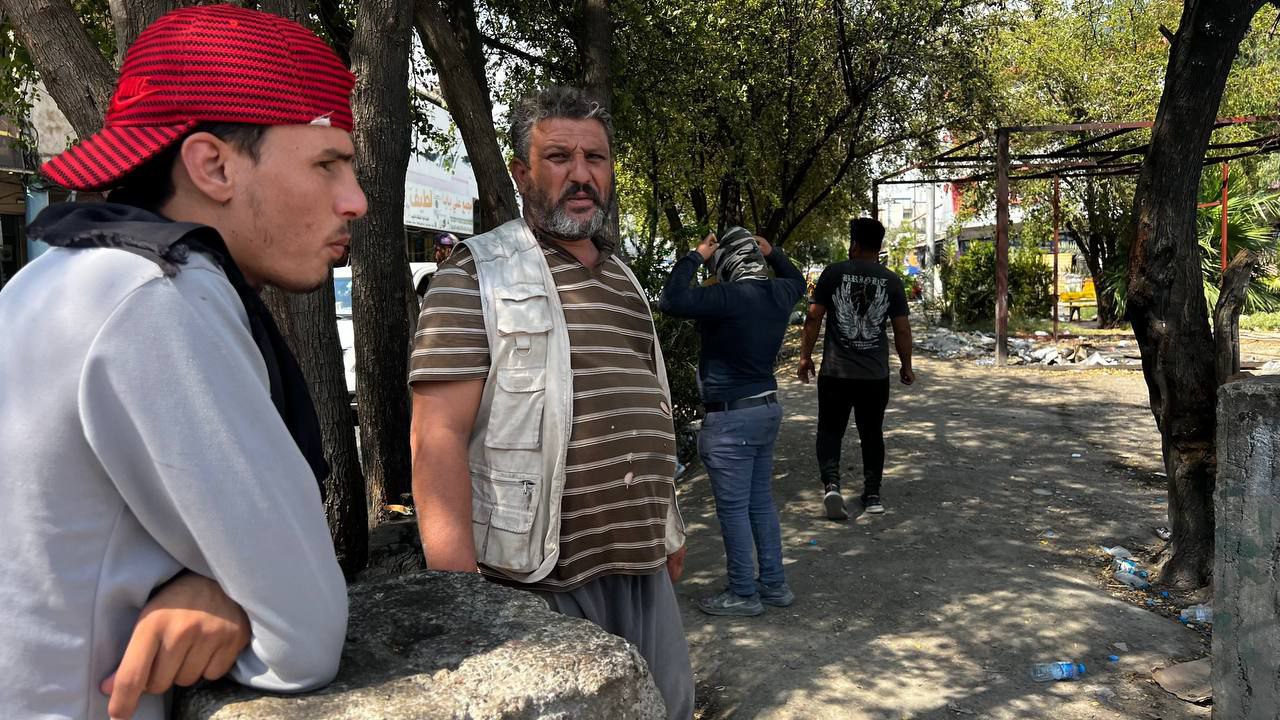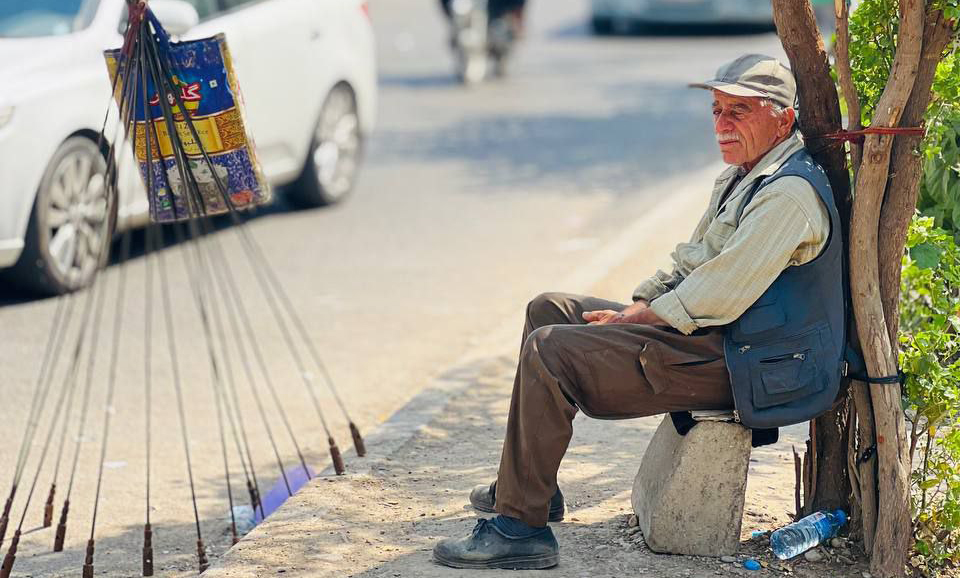State employees can now return to their homes two hours before the end of official work after the Iraqi Prime Minister directed to reduce working hours due to high temperatures, but the decision does not include hundreds of thousands of workers who are forced to work in these exhausting weather conditions.
In general, workers in Iraq work eight hours a day. Most of them work in open spaces and are exposed to direct sunlight, without the most important resting places or air conditioning equipment available.
Temperatures reached half the boiling point this week for the first time this year. On June 22, the Iraqi Prime Minister issued several decisions for the safety of government employees and citizens from the effects of the heat wave.
According to the decisions of the Council of Ministers, the official start time in all government institutions is at seven in the morning and the end of work at one in the afternoon (previously, work started from eight in the morning until three in the afternoon).
Employers do not provide us with any facilities
Saleh, in his seventies, was waiting to get a job in Ahmed Agha Bazaar in central Kirkuk. He said that if hired one day, he would have to work until four in the afternoon and that his work would often be under the blazing sun.
He downplayed the importance of the government's decision and said, "What do I have to do with it? I haven't even heard of the decision. I have to work until the evening. The government's decision is not for the workers."
The Prime Minister's decision was based on the predictions of the Iraqi Meteorological Authority, which predicted a severe heat wave during the current week.
According to Labor Law No. 37 of 2015, daily working hours in the private and mixed sectors do not exceed 8 hours per day and 48 hours per week, taking into account weather conditions.
At least 85% of the daily-paid construction laborers do not have a work contract across Iraq.
A study by the Ninewa Planning Department in 2022 found out that 96% of workers who work for a daily wage have social insurance once they are at retirement age, while 95% work without any health insurance.
The study prepared by the Ministry of Planning includes the category of workers within the age groups between 10-30 years across Iraq, in both the public and private sectors, as 19% work in the public sector and 81% in the private sector, mostly without any employment contract that guarantees their rights and the rights of the employer.

A group of workers waiting to get work in Ahmed Agha Square in the city center, Kirkuk, June 25, 2024. Aziza Wali
In Kirkuk's Construction Workers' Square, several young workers spoke of their suffering due to the lack of job opportunities, noting that they get work only two days a week making only 50,000 Iraqi dinars IQD (USD35) for the entire week.
Most of the workers in the field were wearing a hat or a cloth mask over their faces to protect themselves from the heat, while the temperature in Kirkuk approached 50 degrees Celsius.
“Employers do not provide us with any facilities, they do not take into account the extreme heat in the summer, they want us to work in all conditions and they do not treat us as human beings,” said a young man in Ahmed Agha Market while he was waiting to get a job.
This week, the Iraqi Ministry of Health circulated instructions for protection from the sun's rays, especially during high-temperature hours between 10 a.m. and 4 p.m.
However, the workers of Ahmed Agha Square stressed that they could not abide by these instructions. “We beg to be hired if we get it at all.”
Daily-paid workers usually attend a public square in the morning hoping to be hired 2-3 days a week as their employment is daily.
The daily-paid builders are not entitled to social insurance or retirement, blaming the government and unions for not enlightening them about their lawful rights. State employees are entitled to a pension salary of almost 80% of their monthly salary.
On June 12, the International Labor Organization ILO called on the Iraqi government, labor organizations, and employers to take effective steps to limit working hours and organize awareness campaigns about heat stress, to mitigate the impact of the significant rise in temperatures.
The ILO stressed the importance of updating the legal framework related to occupational safety and health and developing the necessary procedures to protect workers from extremely high temperatures during the summer.
The problem facing trade unions is that most workers do not join these unions to demand their legal rights.
Rizgar Baban, vice president of the Kirkuk branch of the Federation of Trade Unions, told KirkukNow, “We encourage business owners to adjust working hours to suit weather conditions and temperatures. We urge them to organize awareness sessions for workers, especially the ways to protect against heat and methods of treating heat stress.”
"We also ask them to specify the hours for the worker to stay in the sun and provide them with appropriate resting places and air conditioning equipment."






